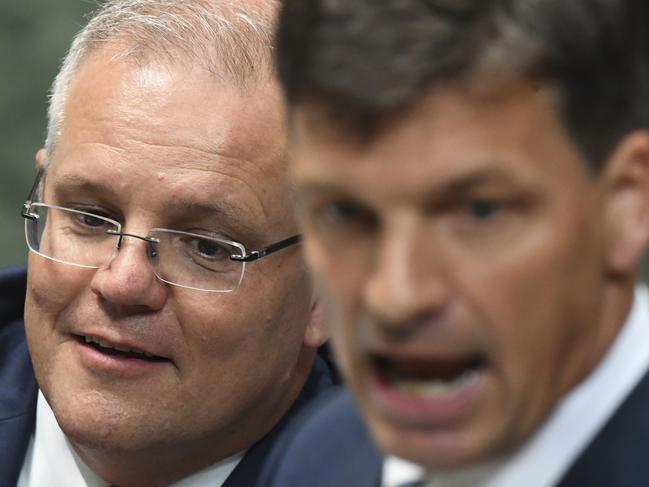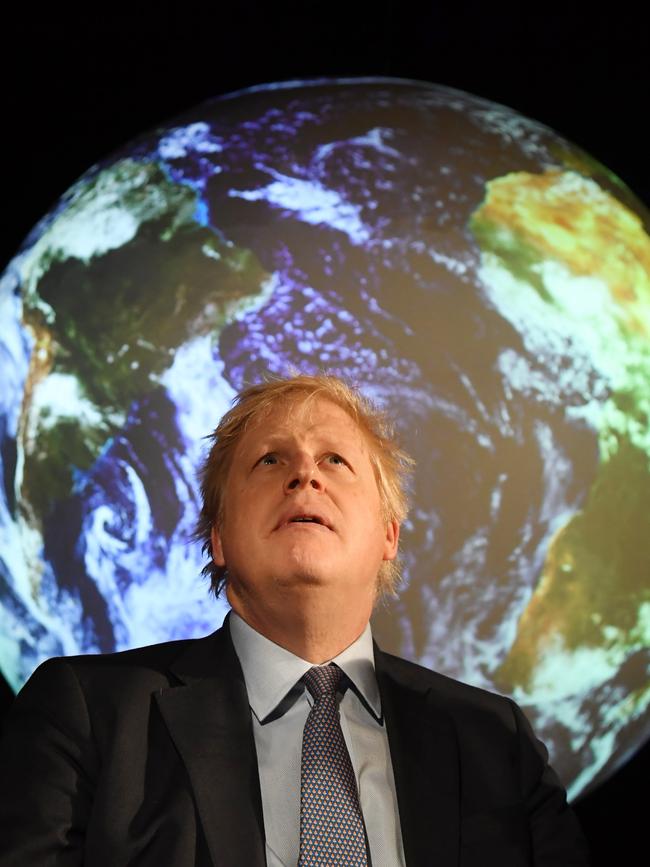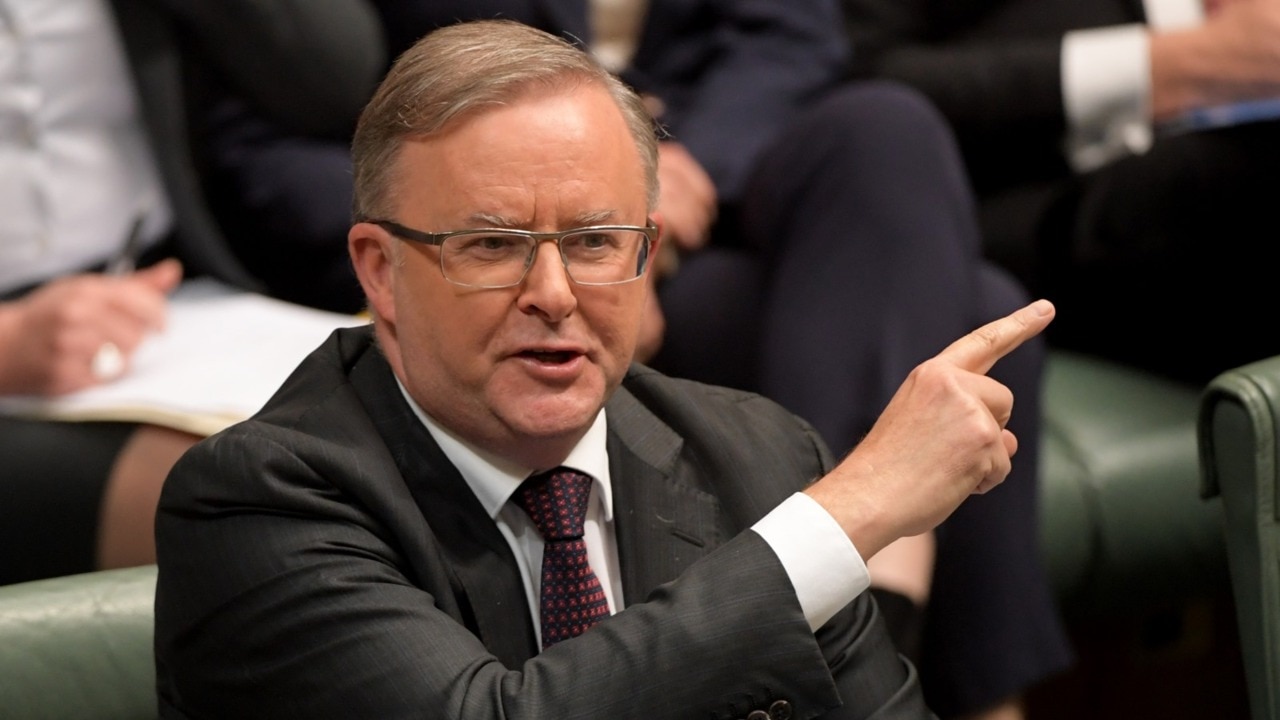
Labor and the Greens are not going to convince voters that climate change demands a major economic transformation with alarmism and hollow gestures. Nor will the Coalition persuade voters that ambitious emissions reduction targets will decimate our economy. And One Nation’s claim that climate change is a grand hoax is beyond parody.
The challenge for policymakers is not just accepting that the warming of the planet has consequences for our economy, environment, health and wellbeing. That should be a given.
The critical test is to develop effective policies that mitigate the impact of climate change and facilitate the decarbonisation of the economy.

Scott Morrison has correctly identified the best way to deal with climate change is to encourage the development of low-emissions technology that also provides for the security and reliability of energy supply. His government is identifying a technology road map. But where is that road map leading? What is the end goal that provides a clear signal to the market about what they are aiming to achieve?
The goal of net zero emission by 2050 has support nationally and internationally, across business, unions and environmentalists, from progressive and conservative governments. Every Australian state and territory government has signed up. So have 73 countries. How can the Prime Minister argue against this diverse alliance of competing interests? Wisely, Morrison has not ruled out supporting the goal of net zero emissions by 2050. It makes sense to work out a plan to achieve it first. But it will not be tenable for Australia to attend the UN Climate Change Conference in Glasgow in November without having signed up to this goal — and it is only a goal. Australia would be a laughing stock.

There is nothing ideological in accepting the science of climate change and acting to mitigate it. Boris Johnson, who leads a conservative government in Britain, has embraced the 2050 goal. He is a Green Tory. His government has policies to phase out coal-fired power by 2024 and diesel and petrol vehicles by 2035.
“I hope that we can as a planet, and as a community of nations, get to net zero within decades,” Johnson said last month. “Let’s make this year the moment when we come together with the courage and the technological ambition to solve man-made climate change and to choose a cleaner and greener future for all our children and grandchildren.” This is a remarkable statement.
Anthony Albanese supports the goal of net zero emissions by 2050 to halt the warming of the planet before it is too late. But what is his policy pathway to achieve it? Nothing. Naught. Zilch. Zero. Zip. His argument that the cost of not acting is greater than the cost of acting will not wash with voters. It fails the credibility test.
Labor has misjudged the politics of climate change. While most voters want to reduce emissions, few are willing to pay more for their power bills or sacrifice jobs to achieve it. They want a plan for transitioning the economy. Labor cannot realistically promise that 8000 workers in coal-fired power plants will automatically get new jobs installing solar roof panels or maintaining wind turbines.
Lower energy prices. Lower emissions. More jobs. pic.twitter.com/k8UfREDsBM
— Anthony Albanese (@AlboMP) February 21, 2020
Mark Butler, who wanted to end backroom factional deals until he accepted one to remain in parliament, has been bad for Labor. Butler is a climate change zealot. His “climate emergency” motion presented to parliament last year was empty rhetoric. It confirmed fears among working-class voters in rural and regional areas that Labor is not on their side. Butler has not done the hard policy work to show how the economy can transition.
Butler, and other Labor frontbenchers, characterised the election last year as a climate change election. They were wrong about this. Moreover, Labor’s ambitious emissions reduction targets were not modelled to identify the impact on the economy. This became a major issue as MPs and candidates had no answer to voter questions about these policies.
The problem is that both Labor and the Coalition lack courage and ambition. Neither the government nor the opposition has done the policy work. This is a chronic failure of modern politics: we lack the leaders who can identify problems, develop a plan to respond to them, articulate why and how this should be done, win public support, and then implement it.
Think about John Curtin and Ben Chifley’s postwar immigration scheme; Robert Menzies’ trade and commerce agreement with Japan; Harold Holt dismantling the White Australia policy; Gough Whitlam unfreezing relations with China; Bob Hawke and Paul Keating floating the dollar, slashing tariffs and privatising assets; and John Howard’s gun laws and introducing the GST.

Achieving net zero emissions within 30 years is not beyond us. Consider the technological changes in the past 30 years: the internet, GPS, iPhones and iPads, texting and emailing, social media, cloud computing and 3D printing. It is impossible to predict the future. But we know the gains from technological innovation — as essentially held in Moore’s Law — accelerate across time.
Investment in renewable energy will continue to increase and the cost will decrease. Last year, 25 per cent of electricity came from renewables; it is predicted to grow to 34 per cent by 2023. We need to continue to transition from coal-fired power to wind and solar energy, hydrogen and natural gas, hydro-electricity and introduce nuclear power. Investing in battery storage and making the energy grid more stable and secure is essential.
While we should be optimistic about a technology-led decarbonisation of the economy, and businesses are already acting, we need governments to help facilitate this transition. As a wealthy country with high per capita emissions, we can lead the way and reap the economic benefits. But this requires courage and ambition, and detailed policy work. Instead, our politicians are more interested in a favourable headline than in making history.


